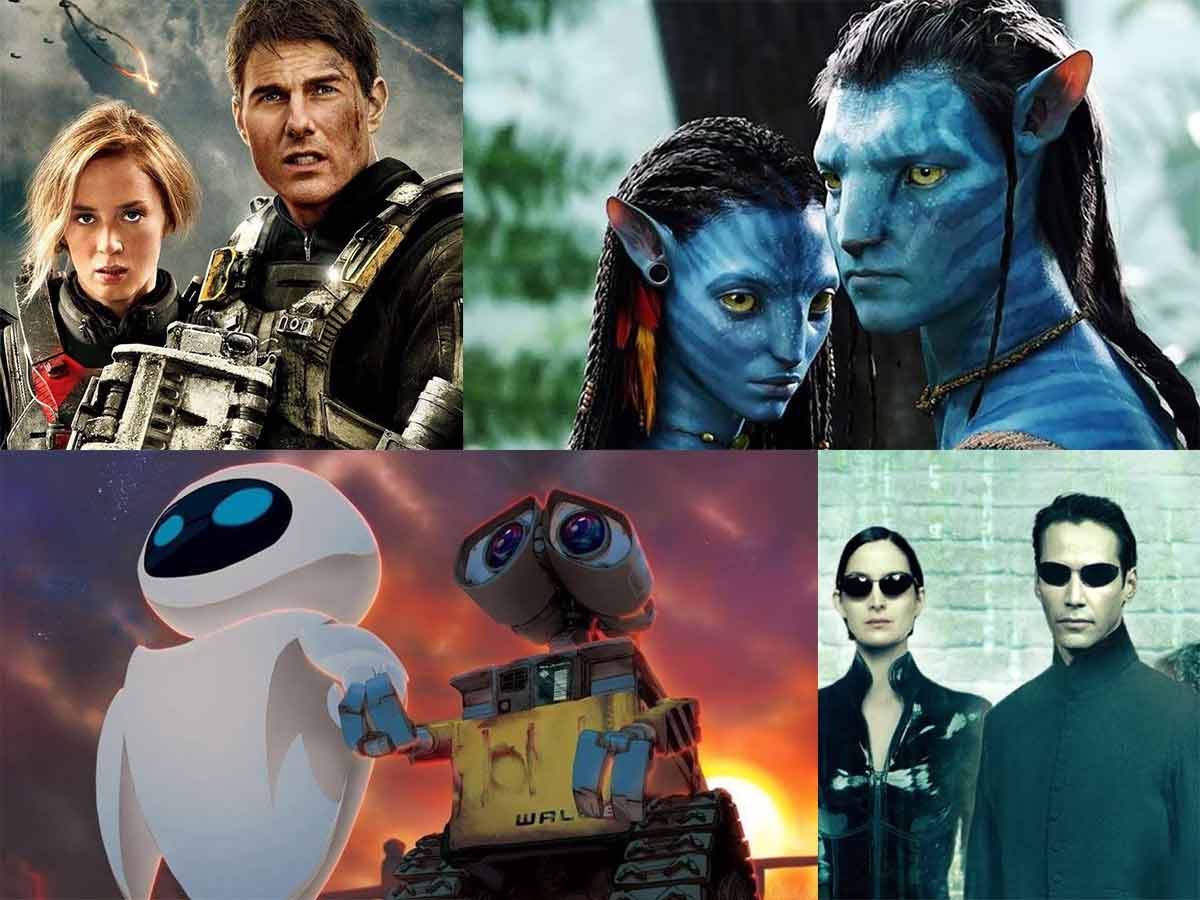In case you needed a reminder, we’re living in a golden period of sci fi movies.
Let’s face it: we are already living in the future. We’ve got robot vehicles, computers in our smartphones, and Large Hadron Colliders, and we’re not going anywhere anytime soon. The sci fi movies of the past are still fantastic. Still, the best sci fi movies of the twenty-first century confront an impossible challenge: the future we could see in the year 2000 is, in many respects, dramatically different from the future we envisage now, and many of the technology we now take for granted were a pipe dream only 20 years ago.
So it’s amazing to go back over the previous 20 years of sci fi movies and see filmmakers try to stay on the cutting edge of the cutting edge, always one step ahead and (hopefully) never damaged by the next huge leap forward. So far, the great sci fi films of the twenty-first century have found ways to connect their large, future themes with present and/or universal themes. Our fears about governments, technology, artificial intelligence, inconceivable new creatures, and our own possibly problematic natures inspire the fiction we write about what lies ahead for humanity.
And these are the best Sci fi Movies about our tomorrows that have been told today.
A.I. Artificial Intelligence
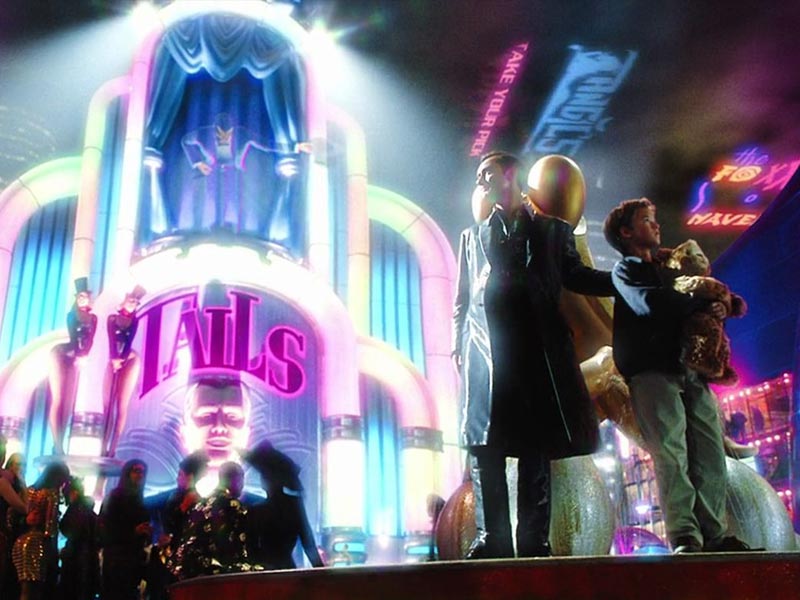
A.I. Artificial Intelligence was originally conceived as a direct collaboration between Steven Spielberg and Stanley Kubrick. It was completed by Spielberg barely two years after Kubrick’s death. It really represents the junction of the legendary directors’ tastes. It tells the narrative of a realistic robot kid, Haley Joel Osment, who is designed to love but is rejected by his would-be mother. Since he was never taught to comprehend rejection, it starts on a vain journey to be a nice, human child.
Inherently emotive yet objectively cynical, A.I. Artificial Intelligence depicts how a new lower class of people will be misunderstood and exploited by their creators at a time when technology has only just begun to exceed the limits of the humans who built it. The ending has been accused of maudlin sentimentality, which it may be. Still, Spielberg may be excused for adoring the hero of A.I. enough to allow him a little leeway.
Minority Report
In the early 2000s, Spielberg created another sci fi classic with Minority Report, an adaptation of a Philip K. Dick tale about a future where murders are prevented before they happen. Still, would-be killers – who technically haven’t committed a crime yet – are prosecuted the same way. Tom Cruise plays a detective who finds he’s been accused of premeditated murder and attempts to clear his reputation by locating a “minority report” that would build a case for at least one possible reality in which he does nothing wrong.
Minority Report is a daring and exhilarating pursuit of a wrongfully accused guy, and Spielberg approaches the plot like a Hitchcockian thrill trip at its center. He also stuffs the picture with up-to-date futuristic notions. He effectively forecasts some current developments, such as digital advertising aimed particularly at particular customers based on their prior behavior. But, perhaps most importantly, Spielberg’s picture addresses the profound moral and ethical implications of maintaining international peace at the expense of reasonable justice. It’s one of the year’s brightest and most inventive blockbusters.
WALL-E
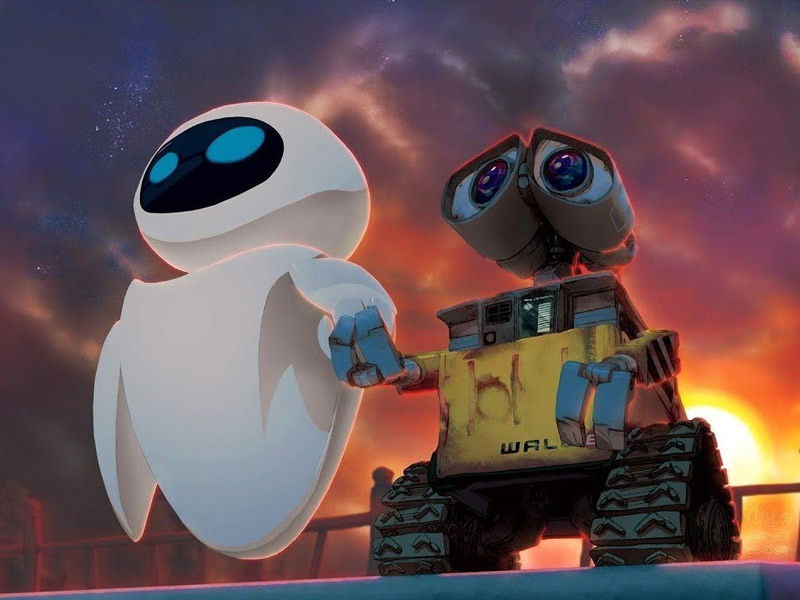
To this day, one of Pixar’s most ambitious projects is an epic sci fi comedy romantic tale about a small garbage compactor robot that learns how to love and rescues all of mankind merely by virtue of his unexpected existence and resolute binary-coded heart. WALL-E is an incredible marvel of a movie, daringly communicating the first half of the plot in almost complete silence before rocketing into outer space and delivering scathing condemnations about how consumerism and naïve confidence in social structures can easily push civilization into near-total inactivity.
The Avatar
![]()
There are parts of James Cameron’s ultra-mega-super-blockbuster sci fi remarkable Avatar that, frankly, seem primitive. It’s a tired narrative about a generic colonial hero who immerses himself in another culture, becomes their greatest hero, and fights superficial bad guys who only need to raise a commotion in the first place because they’re seeking a stupidly named MacGuffin called “Unobtainium,” for screaming out loud.
But the beauty of Avatar is that Cameron understands that those basic storytelling cliches are built in the DNA of almost every action-adventure picture on some level. By reverting to that simplicity, he can give his boldest goals – a distinct, gorgeous alien planet brought to life by breakthrough CGI and game-changing 3-D filmmaking – the full limelight.
TRON: Legacy
When the first TRON movie was released in 1982, audiences were not prepared. The ultra-stylized, neon-highlighted sci fi/fantasy stars Jeff Bridges as a programmer who became engulfed in the inner realm of a computer’s operating system, where anthropomorphic programs revere their invisible users like gods.
Snowpiercer
Even though it stars Chris Evans, one of the great comic book movies of the twenty-first century has nothing to do with superheroes. The post-apocalyptic Snowpiercer is set in the future when Earth has been plunged into everlasting winter following a failed attempt to cure climate change, and the last traces of civilization dwell onboard a massive train that endlessly circumnavigates the globe. The folks at the front of the train live in luxury, the ones at the back dwell in misery, and every vehicle in between is essential to the operation of their terrifying, dystopian society.
Also Read, 8 Movies about Space, Must watch for every Enthusiast
Edge of Tomorrow
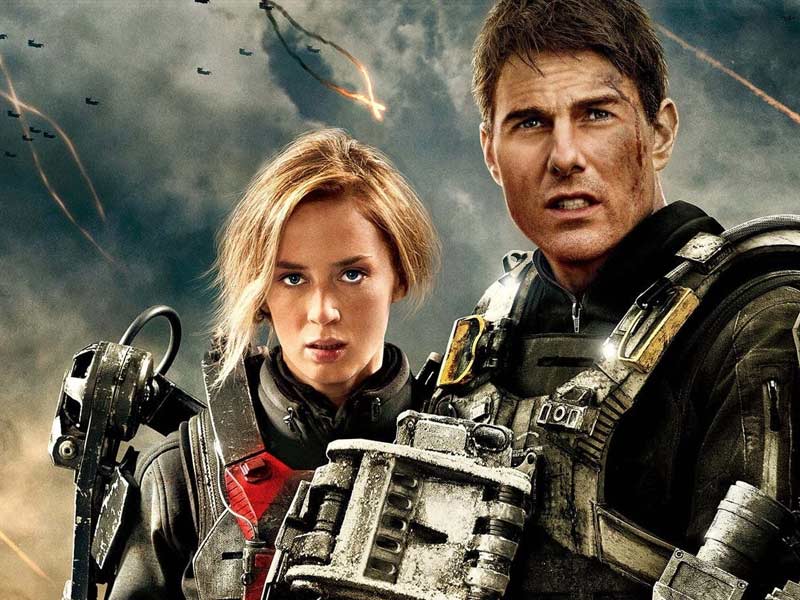
Most action films try all they can to avoid killing their protagonist, but that is not the case in Doug Liman’s insidiously smart Edge of Tomorrow. Tom Cruise plays a military publicist who is taken to the front lines and forced to battle for his life against an extraterrestrial fleet, and he dies nearly instantly. The humor is that he then returns to the beginning of his day, experiencing all of the same events, and dies almost shortly. In fact, Tom Cruise dies so many times in Edge of Tomorrow that the picture has one of the highest body counts in years… And Tom Cruise is always the victim.
The mischievous joy with which Liman continually slaughters one of cinema’s most famous performers would be enough to make Edge of Tomorrow a low-key joy. But the unbelievably smart screenplay finds clever ways to make this time-traveling mechanism fascinating, complicated, a boon, and a dreadful hurdle.
2001: A Space Odyssey.
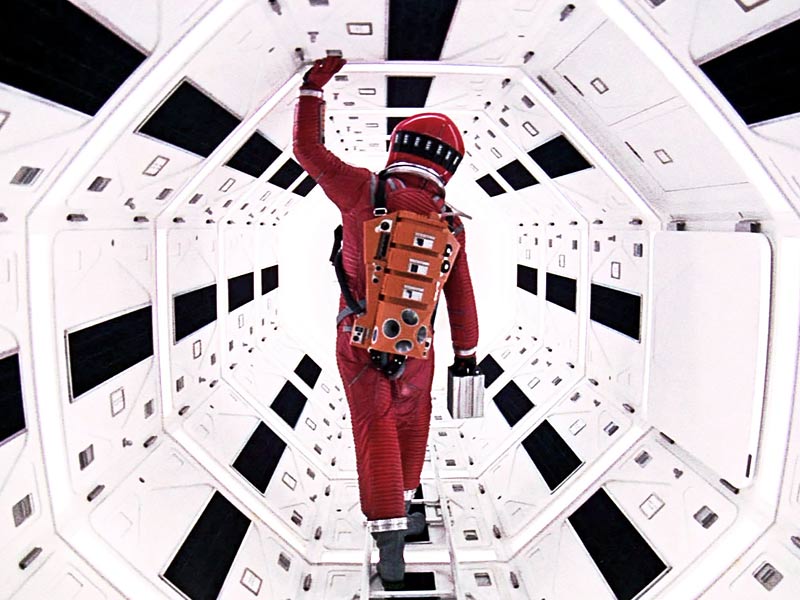
The impact of Stanley Kubrick’s masterwork 2001: A Space Odyssey cannot be overstated. It not only changed cinema forever, but it also inspired the world around it with its daring ideas and futuristic images.
While some considered earlier decades’ sci fi as schlocky fun, 2001 demonstrated that the genre could be intellectual with few action scenes to speak of. It’s stunning visual has lingered in viewers’ imaginations for decades, and it conveys extremely thought-provoking themes.
2001: A Space Odyssey, released a full year before Neil Armstrong made one modest stride for mankind, made one gigantic leap for the sci fi movie.
Interstellar
Interstellar, Christopher Nolan’s enormous sci fi epic, may not have been 2001: A Space Odyssey of its period. Still, it may permanently redefine the way we see space travel in movie.
The crew’s aim is to seek the few possibly habitable planets within reach for a new home.
That voyage is filled with risk and sometimes tremendously scary. Still, the movie’s attempts to be emotionally evocative often fall flat. Anne Hathaway’s statement that reduces the notion of love to fundamental physics may represent how much of Interstellar is a purely cerebral exercise.
Interstellar presents spectators to new and far more scientifically correct depictions of astronomical events, add new historical components to our knowledge of visiting new worlds and even radically reinvents motion picture robots.
Predestination
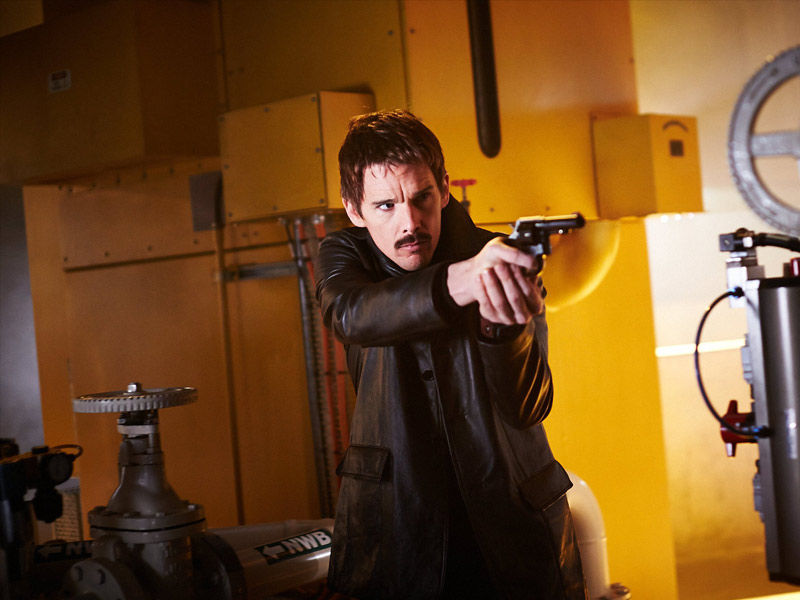
All You Zombies, Robert Heinlein’s incredibly intricate short novella, has little to do with zombies as we know them and everything to do with paradoxes. Ethan Hawke is a time-traveling special agent attempting to apprehend a crazed bomber while simultaneously taking on a new mission concerning a writer, portrayed by Sarah Snook. Her life narrative is absolutely unique in the universe.
Predestination swiftly becomes intricate, but The Spierig Brothers’ directing maintains the picture clean and easy to follow by focusing on Snook’s incredibly gorgeous, nuanced performance.
Ex Machina
Ex Machina starts with a scary idea and just becomes creepier from there: Oscar Isaac is a millionaire scientist who asks one of his office drones, Domhnall Gleeson, to spend the weekend at his remote mansion. However, it is not a social call. It’s a test to see if a regular guy can communicate with the inventor’s latest invention – a gorgeous, feminine robot played by Alicia Vikander – and establish whether it’s officially “human.”
Ex Machina professes to be about artificial intelligence but swiftly segues into more contemporary themes about gender and sexism, as two men discuss whether a woman – who, robot or not, is both self-aware and terrified – deserves to be considered a human at all. Of course, they learn that they cannot comprehend the issue, let alone provide a response.
Ready Player One
Ready Player One, directed by Steven Spielberg, is a fantastic sci fi movie, a huge loving mess. I burst out laughing. I sobbed. Confounded, I folded my arms. I rejoiced when the 2D evil guys got what they deserved. Fans of sci fi will remember this sci fi movie for centuries. If you are not one of us, you have been warned.
Ready Player One, based on Ernest Cline’s best-selling novel of the same name, launched in 2018 and quickly became a favorite of all virtual reality and video game enthusiasts, as well as anybody looking for a dystopian and future journey.
Upgrade
A terrible accident kills a lady and paralyzes her Luddite husband, played by Logan Marshall-Green, but that is not the end of Leigh Whannell’s extraordinary narrative. A new scientific advancement is known as “STEM” is linked to our hero’s spine, making new connections between his brain and his body and, to everyone’s surprise, communicating to his host like his new best friend.
As STEM helps investigate the mystery of his wife’s murder and intermittently takes control of the entire body to protect themselves, Upgrade quickly gets into pulpy genre territory. But that’s only a vehicle for great concepts about the future of medical technology, artificial intelligence, and an absolutely fantastic performance by Marshall-Green, who has to move robotically below the neck like a murdering machine. At the same time, his head plays completely other characters.
The Matrix
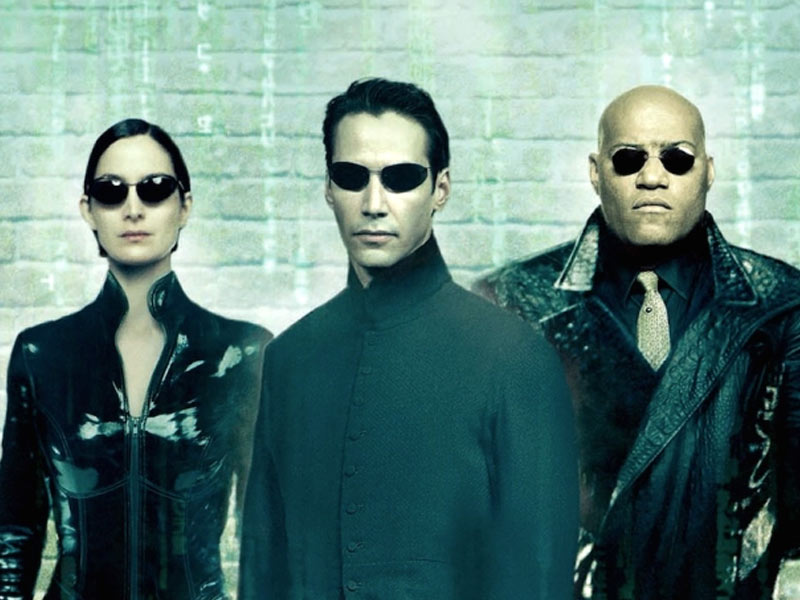
The Matrix is another sci fi movie that plainly took inspiration from various sources but finally evolved into something that would inspire future films. The movie truly exemplified what the sci fi genre was capable of: offering the viewer something they had never seen before.
It has been ridiculed several times, yet it has also encouraged big-budget films to be daring and innovative. The Matrix was all about proving the impossible to be achievable, from the action to the spectacular effects to the concepts.
The Matrix’s message is conveyed to the viewers through tone. Because of the harsh scenery brought to life by terrible cinematography, we comprehend the need of liberating humankind. This dismal future is truly depressing. Monotone colors are utilized liberally throughout the movie to depict a bleak world.
Intelligent robots have induced a sleep in human culture. Only a few people have awoken from their vegetative state.





















